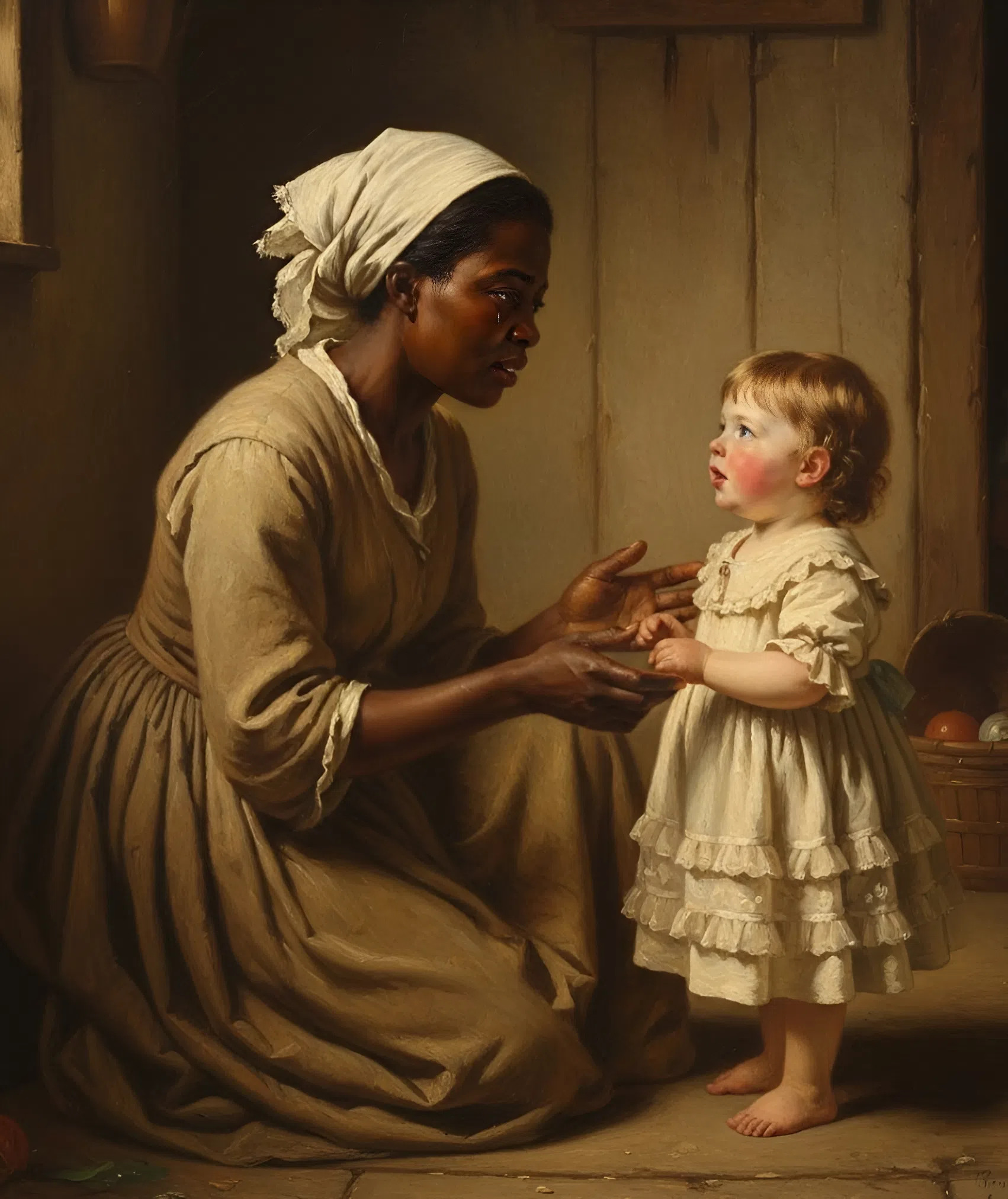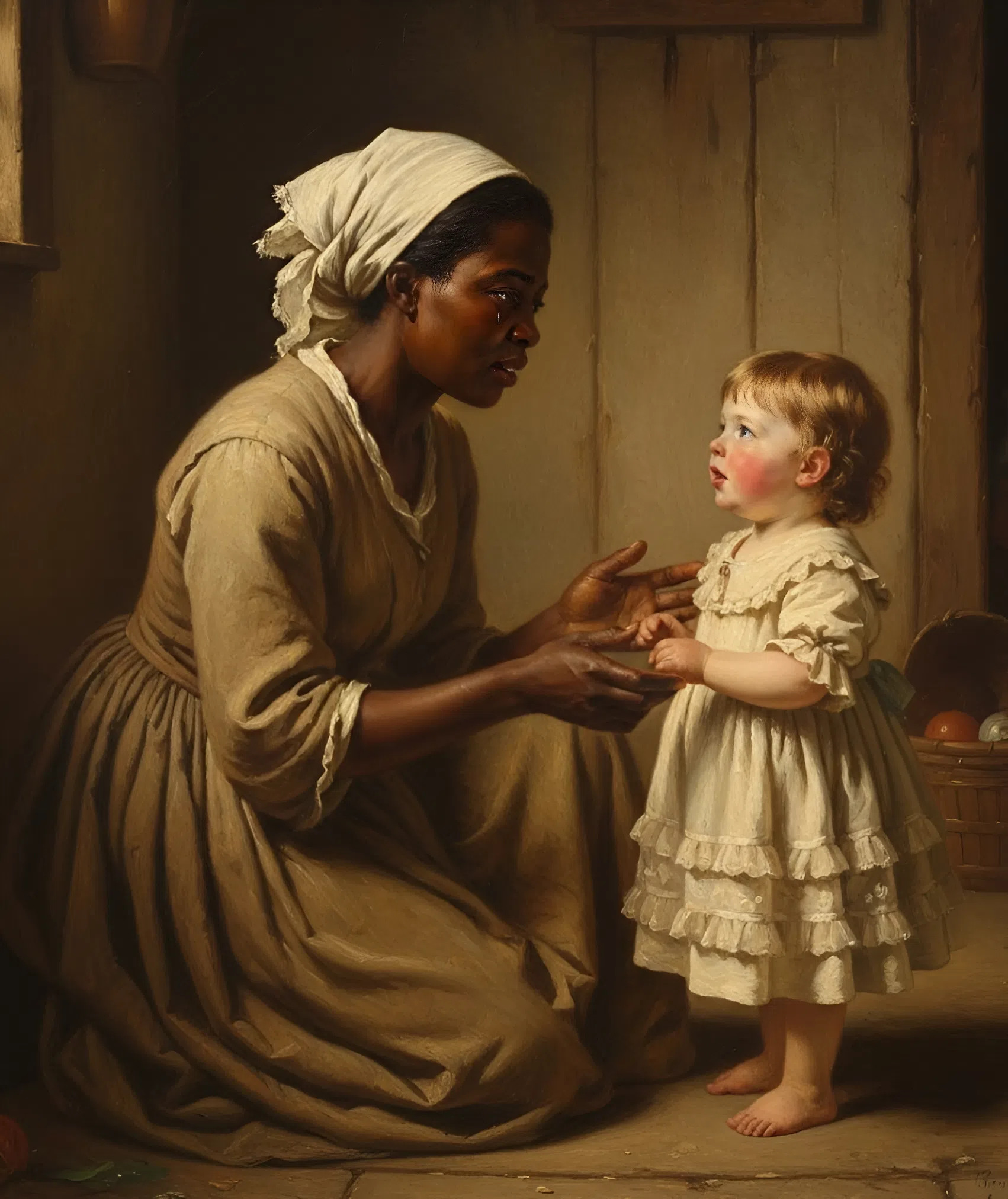In the silence of the large house, behind heavy curtains, sunlight barely penetrated. The eternal twilight seemed to absorb every sound and smell, leaving only the faint echo of the servants’ footsteps and the quiet sobs of two-year-old Clara. Duke Joaquin de la Vega, who had recently lost his wife and newborn son, lived in this house like a shadow of his former self. His face resembled a carved mask, his eyes were dull, his heart was broken into a thousand pieces. He wandered the empty corridors, as if he had lost his inner support, clinging only to the remnants of his strength — to keep the house and care for his daughter.
Clara refused to eat or sleep, and her crying was quiet, almost silent — a grief that could not be expressed in words. Five nannies had already been replaced, but none of them could stay. Some left on their own, others were dismissed by the duke with a single glance. Each failure hurt his soul — a reflection of his own helplessness, which he could not bear.
‘She doesn’t notice me,’ he once confessed to the priest. ‘Even when she cries, she doesn’t look for me.’
The priest just nodded silently — he had no words.
But Duke Joaquin was determined to take action. On the eleventh day after the funeral, he put on simple clothes, took the keys to the carriage and went to the city. His goal was simple but painful: to find someone who could bring life back to his daughter’s eyes.
He walked through the noisy streets, entering houses where caring governesses and nannies worked. And among the crowd of people, his gaze fell on a woman sitting in the shade of an old tree in the city market: calm, confident, with a straight back and a proud gaze. Her presence was different from everyone else’s — no fear, no anxiety, only inner strength. She was twenty-four-year-old Camilla.
‘Do you know how to take care of children?’ asked the duke, feeling the tension in him ease slightly.
‘Yes,’ she replied directly and calmly. ‘I can sing, I know songs, I can read.’
She radiated warmth and trust. The duke invited her to come with him, explained the situation, and suggested they try it together. Camilla agreed, understanding that her knowledge and care were needed not to carry out orders, but to save a child’s soul.
When Camilla first entered Clara’s house, she acted cautiously and respectfully: without demanding closeness, she just quietly began to hum a song in an unfamiliar language. Clara looked up — she wasn’t crying, just listening. It was the first sign that life could return to this house.
Days turned into weeks, and Camilla gradually won the girl’s trust. She brought small toys, told stories about animals, trees and the sea — always in a whisper, respecting the silence. By the end of the first week, Clara allowed her to come closer, sat down next to her and fell asleep on Camilla’s lap for the first time.
The duke watched from afar. His heart slowly softened, and the ice inside began to melt. He realised that this house had gained not just a helper, but a person with her own mind and experience. Camilla knew how to teach and guide, but never tried to dominate.
One day, the duke quietly asked:
‘Where are you from?’
Camilla said that she was born free. Her father was Portuguese and ran a shop in Morelia; her mother was a black woman who was also free. After her father’s death, her life changed dramatically: her documents were destroyed, her property was taken away, and her mother soon died. Camilla was passed from one family to another many times, but her spirit remained unbroken.
The story sounded incredible, but the duke saw the truth in her eyes. She did not seek pity or ask to be saved. She simply told her story, knowing that the truth gives strength, while silence brings only punishment.
Duke Joaquin began his own investigation. He sent letters to Morelia, requested documents, and met with nuns and former shop employees. Each new piece of evidence confirmed that Camilla was indeed born free and that her rights had been illegally violated.
After several weeks, he returned with evidence — documents, letters, and testimonies. Upon learning that her freedom had been officially recognised, Camilla allowed herself to relax for the first time. Now no one owned her — but of her own free will, she stayed to teach and care for Clara.

The house had changed. Clara laughed again, ran around the garden, and took an interest in the world. Camilla became not only her governess, but also Duke Joaquin’s confidante. Their relationship was no longer that of ‘master and servant.’ Now it was one of mutual support, respect, and trust.
The servants, neighbours, and townspeople initially discussed Camilla’s unusual status, but soon got used to it. Duke Joaquin no longer followed society’s expectations — he followed truth and morality.
The evenings became longer, but they were no longer empty. The duke and Camilla often sat in the library, reading old books, talking about life, songs, and stories that Camilla told Clara.
Every day brought new joy: the first laugh after waking up, the first story about the birds in the garden, the first drawing of Clara, Duke Joaquin and Camilla together, like a real family built on care, respect and trust.
The house was no longer gloomy. Light penetrated the heavy curtains again, bringing with it hope: love, care and truth can overcome even the darkest times. A real family is built not only on formal ties, but on attentiveness, respect and sincere care.

